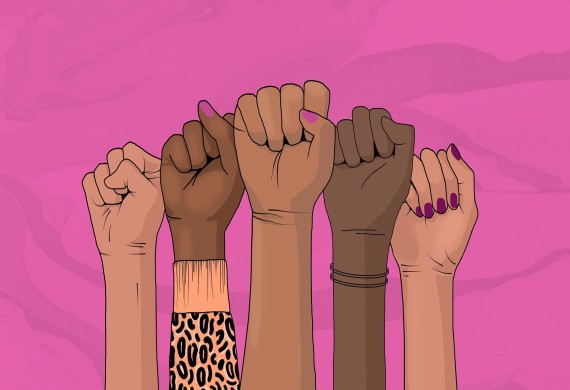
Challenges Women Professionals Face in the Social Impact Space
By: WE Staff
Gender diversity is the driving force behind increased productivity, greater innovation, and higher employee retention and satisfaction.
The circumstances and settings that support a woman's development as a leader in the Indian social sector are complex and multifaceted. Even though they have stronger academic qualifications and India's economy is expanding, data from the previous few years indicate that urban women professionals are leaving the workforce. According to a research, when women enter the workforce, they enter an unequal landscape; an ecosystem that has traditionally been designed for men to flourish.
Understanding the interdependence of the numerous elements that have an impact on women's leadership and performance in the social sector is necessary to address this deeply ingrained imbalance. In order to encourage women in the Indian social sector's journey toward leadership, this article outlines some of the main challenges they face as well as potential solutions.
KEY NSIGHTS: The State of Women's Leadership in the Social Sector
Keeping personal and professional goals in check
The social and cultural demands put on women in this group are frequently based on the idea that one's family and obligations should come first.
According to 61.4% of respondents, one major obstacle to reaching their leadership ambitions is a lack of suitable family and childcare support.
Existence of a leaky pipeline
According to research, gender bias and discrimination are linked to the "leaky pipeline" through both overt and covert mechanisms, resulting in an environment that is unsupportive of women's success. Women are underrepresented in managerial roles in 66% of the sector's organisations, and this discrepancy gets worse as the organisation expands.
Inability to access non-program roles
Women are disproportionately represented in programmatic responsibilities and other organisational settings. The presence of more women in organisations focused on healthcare and education than, say, policy, according to some senior leaders, is expected.
The Challenges Women Face on the Path to Leadership
Building Communication Strength
The respondents claim they are having trouble defining their leadership style and voice. This includes developing an assertive communication style, Developing your narrative skills, starting up talks How do I communicate with a person who is more senior or experienced? How can one "Ask" for assistance? How can one have her job be perceived as a woman leader?
Imposter Syndrome
According to the survey, 50% of women report feeling slowed down by their self-limiting biases, some of which were shaped by messages they encountered along the way.
Existing Patriarchal Social and Cultural Biases
The perception of women in the social sector by the larger sector and beyond continues to be tainted by structural and systemic biases. One factor in this is how male coworkers undervalue the authority and legitimacy of women; respondents note that even when they are the most senior participant at a meeting, inquiries may be diverted to male participants for confirmation.
Lack of Enough Training to Build Capacity in the Areas
Women don't advocate for themselves with the same vigour as men do, and this is true regardless of the industry. Generally speaking, men feel more at ease demanding more voice and defending their work than women do. Additionally, studies suggest that when women are assertive, they are perceived as needlessly "aggressive," which leads to increased resistance and lower negotiation success.
Recommendations and Provocations: A Capacity Building Intervention to Support Emerging Women Leaders in the Sector:
Women's Leadership Program capacity building
A capacity-building programme centred on the themes covered in this report, according to 84.1% of respondents, would improve their leadership journeys. In order to help the women leaders explore their inner and outward selves by pausing and re-connecting with oneself, one's purpose, and one's resilience, these capacity building modules need to be led.
Support for Women Leaders in the Sector through Mentoring and Networking
A crucial component of this research is the significance of mentoring, as indicated by the 72.7% of respondents who said they thought mentoring would enhance their leadership journey. Mentoring by a senior woman leader in the field is said to provide the benefit of not just assisting women in managing their careers but also creating a forum for conversations regarding issues that women cite facing but have no one to talk to about.
Establishing Empowering Support Systems at an Organizational Level
Organizations must be prepared to accept and support the leadership journeys of women. Those respondents who have had successful work experiences see organisational support as the most crucial component in their success. Making gender issues an open topic of conversation and including both men and women in it is a crucial part of this.
Conclusion
A capacity-building intervention that is tailored to the complex experiences of emerging women leaders in the social sector is clearly needed. According to the findings, this would include key upskilling opportunities, access to leadership coaches, and the formation of a peer community dedicated to each other's success. This will also entail collaborating with the broader sector to create an ecosystem that is ready to support women's leadership.
With its commitment to values of inclusivity and justice, the sector has been a key driver in the larger movement toward gender equality. There is ongoing responsibility to create an environment in which emerging female leaders can be empowered and thrive, and there is an urgent need to do so.






